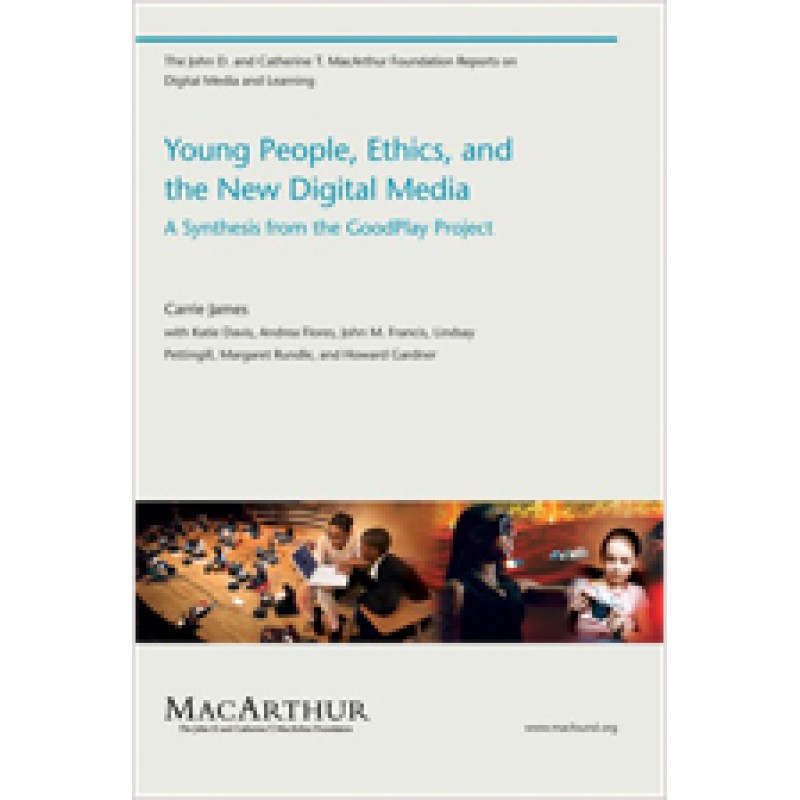Young People, Ethics, and the New Digital Media: A Synthesis from the Good Play Project, Oct/2009
| Author(s) | Carrie James With Katie Davis, Andrea Flores, John M. Francis, Lindsay Pettingill, Margaret Rundle and Howard Gardner |
| ISBN10 | 0262513633 |
| ISBN13 | 9780262513630 |
| Format | Paperback |
| Pages | 128 |
| Year Publish | 2009 October |
Synopsis
Social networking, blogging, vlogging, gaming, instant messaging, downloading music and other content, uploading and sharing their own creative work: these activities made possible by the new digital media are rich with opportunities and risks for young people. This report, part of the GoodPlay Project, undertaken by researchers at Harvard Graduate School of Education's Project Zero, investigates the ethical fault lines of such digital pursuits.
The authors argue that five key issues are at stake in the new media: identity, privacy, ownership and authorship, credibility, and participation. Drawing on evidence from informant interviews, emerging scholarship on new media, and theoretical insights from psychology, sociology, political science, and cultural studies, the report explores the ways in which youth may be redefining these concepts as they engage with new digital media. The authors propose a model of "good play" that involves the unique affordances of the new digital media; related technical and new media literacies; cognitive and moral development and values; online and offline peer culture; and ethical supports, including the absence or presence of adult mentors and relevant educational curricula. This proposed model for ethical play sets the stage for the next part of the GoodPlay project, an empirical study that will invite young people to share their stories of engagement with the new digital media.
The authors argue that five key issues are at stake in the new media: identity, privacy, ownership and authorship, credibility, and participation. Drawing on evidence from informant interviews, emerging scholarship on new media, and theoretical insights from psychology, sociology, political science, and cultural studies, the report explores the ways in which youth may be redefining these concepts as they engage with new digital media. The authors propose a model of "good play" that involves the unique affordances of the new digital media; related technical and new media literacies; cognitive and moral development and values; online and offline peer culture; and ethical supports, including the absence or presence of adult mentors and relevant educational curricula. This proposed model for ethical play sets the stage for the next part of the GoodPlay project, an empirical study that will invite young people to share their stories of engagement with the new digital media.


